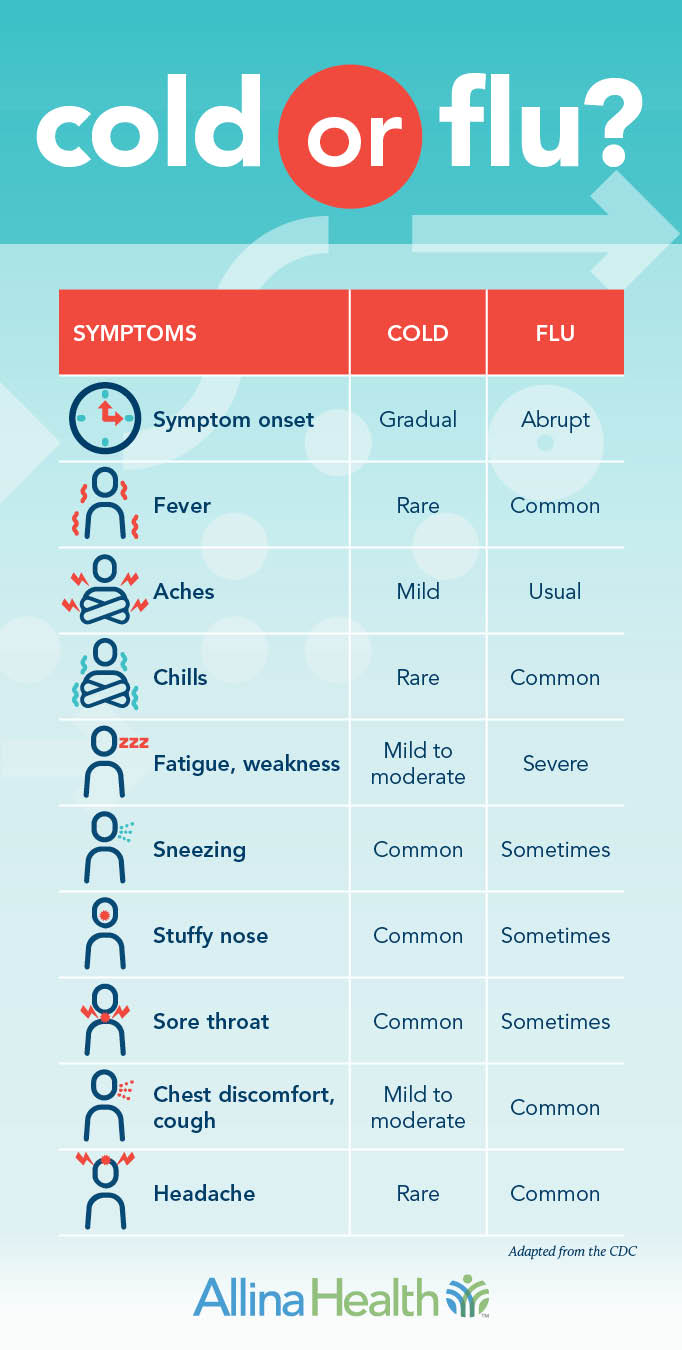CARE
Is it a cold or the flu? How to tell the difference
- You are contagious with influenza for 1-2 days before your symptoms start.
- Both colds and flu are spread by droplets transmitted by coughing or sneezing.
- Every year, Influenza kills 1-2% of the people it infects.
Both colds and influenza (flu) are respiratory infections. While some symptoms are common to each, they are caused by different viruses and have different symptoms, severity and complications.
In general, flu symptoms are more intense: Typically if you have the flu you’ll have a fever of 100.4 degrees Fahrenheit or higher and body aches. Flu symptoms also tend to last longer, sometimes up to two or even three weeks.
Cold and flu symptom differences:
- You’re more likely to have a stuffed up or runny nose with a cold. Gut symptoms, such as vomiting or diarrhea, are more common with the flu.
- Colds tend to come on gradually; the flu tends to have a more sudden onset and can leave you feeling like you’ve just been run over by a truck!
- Colds usually wind down within a week to 10 days; the flu can hang on up to two weeks or longer.
- The flu is more likely than a cold to lead to a more serious health problem, such as a flare of underlying lung disease (such as asthma or COPD), dehydration due to vomiting and/or diarrhea, a bacterial infection, pneumonia, or a hospital stay.

Here is the infographic comparing common cold and flu symptoms in an alternative format.
Treatment for cold and flu
Most cold and flu symptoms will go away with home treatment and over-the-counter medications. However, if you think that your illness could be due to the flu, seeking medical care within the first 48 hours of symptom onset ensures that anti-viral medication will be most effective. For both a cold and fever it’s important that you stay home for the first several days at least, get plenty of rest, and drink lots of liquids to stay hydrated.
And, if your symptoms worsen after a few days, call your doctor or seek medical care. Allina Health has many convenience care options, from online visits to walk-in care, to help get you through the cold and flu season.
MORE ARTICLES LIKE THIS
Is it a cold or the flu? How to tell the difference
Posted January 27, 2020
Scratchy throat. Stuffed up nose. Fever and body aches. Are these symptoms due to you coming down with a common cold or does it mean you’ve got the flu? Read on for more information on common signs and symptoms of illness that can help tell whether you’ve got a cold or the flu, and the best ways to treat each.
Continue reading this article






